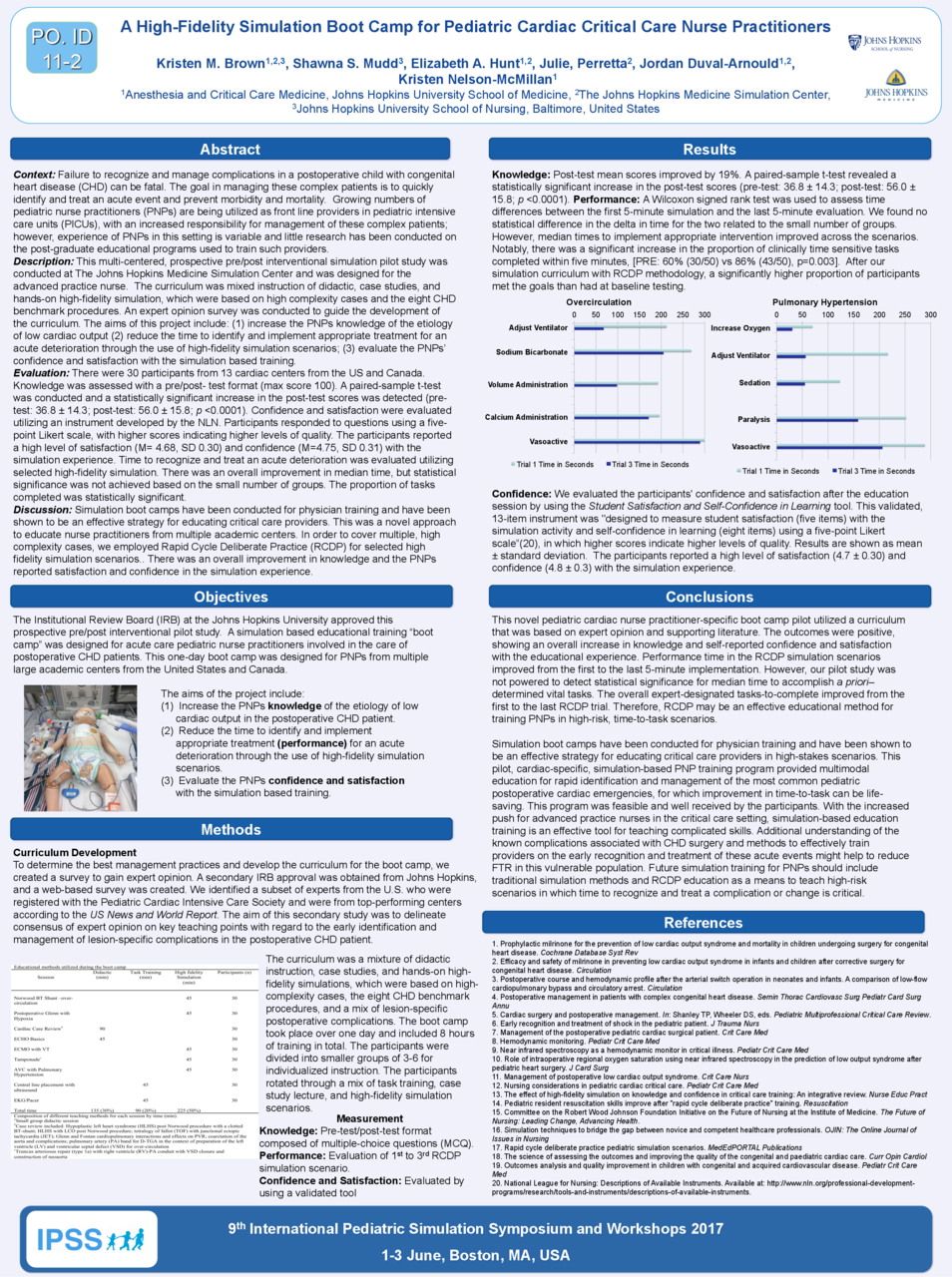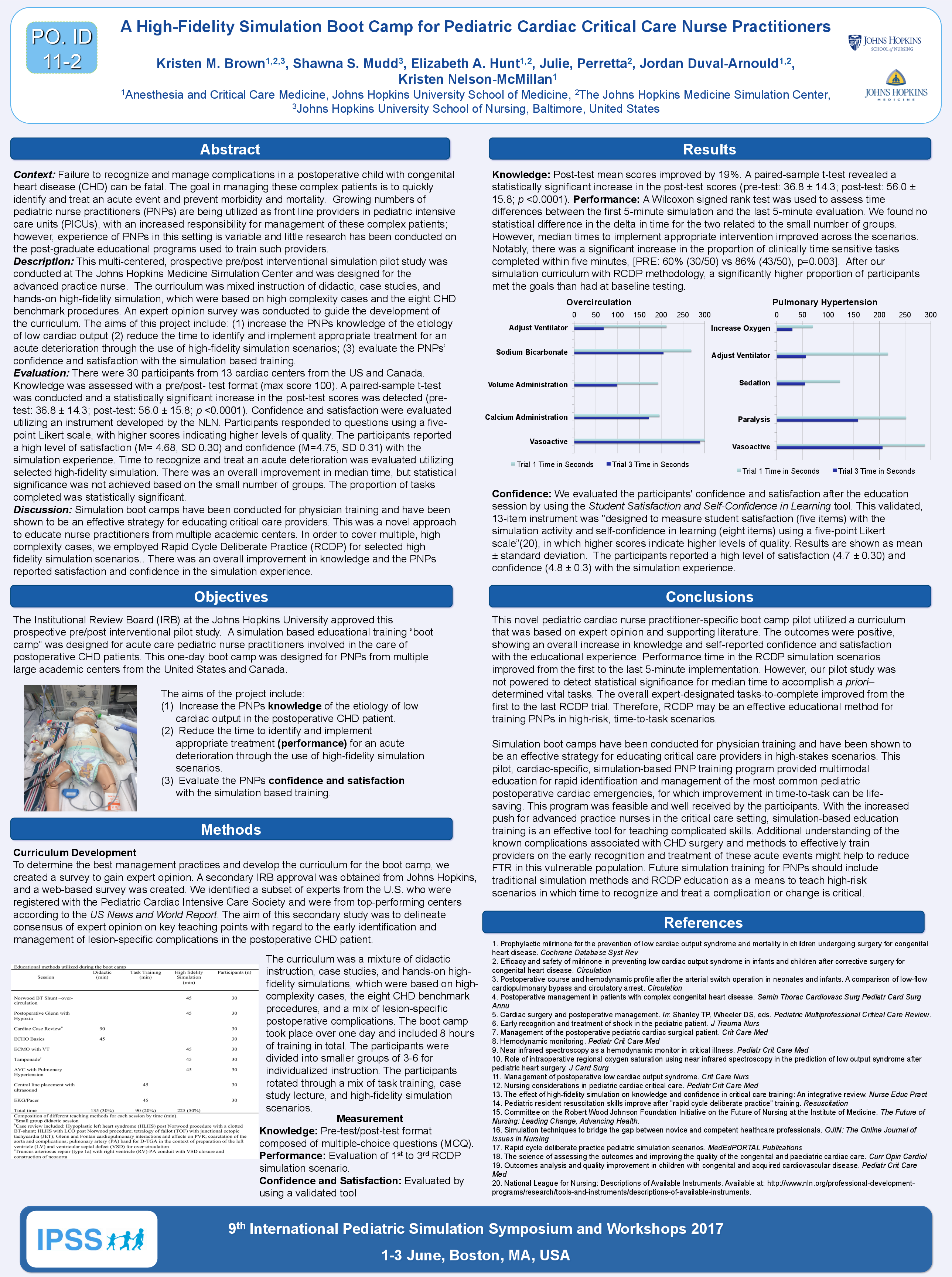Abstract
Context: Failure to recognize and manage complications in a postoperative child with congenital heart disease (CHD) can be fatal. The goal in managing these complex patients is to quickly identify and treat an acute event and prevent morbidity and mortality. Growing numbers of pediatric nurse practitioners (PNPs) are being utilized as front line providers in pediatric intensive care units (PICUs), with an increased responsibility for management of these complex patients; however, experience of PNPs in this setting is variable and little research has been conducted on the post-graduate educational programs used to train such providers.
Description: This multi-centered, prospective pre/post interventional simulation pilot study was conducted at The Johns Hopkins Medicine Simulation Center and was designed for the advanced practice nurse. The curriculum was mixed instruction of didactic, case studies, and hands-on high-fidelity simulation, which were based on high complexity cases and the eight CHD benchmark procedures. An expert opinion survey was conducted to guide the development of the curriculum. The aims of this project include: (1) increase the PNPs knowledge of the etiology of low cardiac output (2) reduce the time to identify and implement appropriate treatment for an acute deterioration through the use of high-fidelity simulation scenarios; (3) evaluate the PNPs’ confidence and satisfaction with the simulation based training.
Evaluation: There were 30 participants from 13 cardiac centers from the US and Canada. Knowledge was assessed with a pre/post- test format (max score 100). A paired-sample t-test was conducted and a statistically significant increase in the post-test scores was detected (pre-test: 36.8 ± 14.3; post-test: 56.0 ± 15.8; p <0.0001). Confidence and satisfaction were evaluated utilizing an instrument developed by the NLN. Participants responded to questions using a five-point Likert scale, with higher scores indicating higher levels of quality. The participants reported a high level of satisfaction (M= 4.68, SD 0.30) and confidence (M=4.75, SD 0.31) with the simulation experience. Time to recognize and treat an acute deterioration was evaluated utilizing selected high-fidelity simulation. There was an overall improvement in median time, but statistical significance was not achieved based on the small number of groups. The proportion of tasks completed was statistically significant.
Discussion: Simulation boot camps have been conducted for physician training and have been shown to be an effective strategy for educating critical care providers. This was a novel approach to educate nurse practitioners from multiple academic centers. In order to cover multiple, high complexity cases, we employed Rapid Cycle Deliberate Practice (RCDP) for selected high fidelity simulation scenarios.. There was an overall improvement in knowledge and the PNPs reported satisfaction and confidence in the simulation experience.






